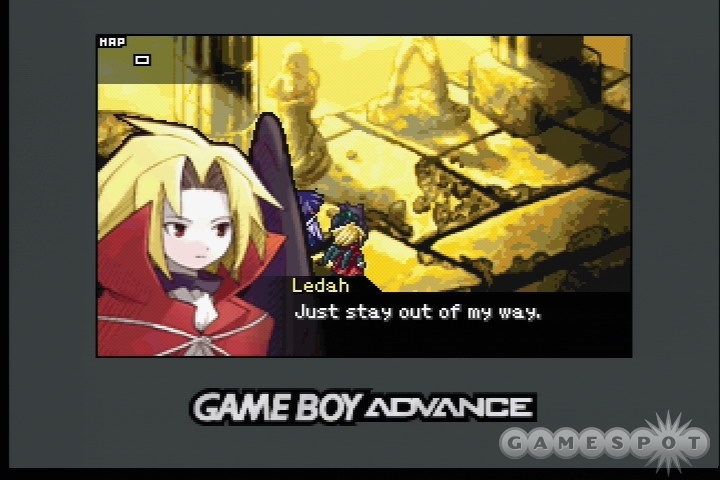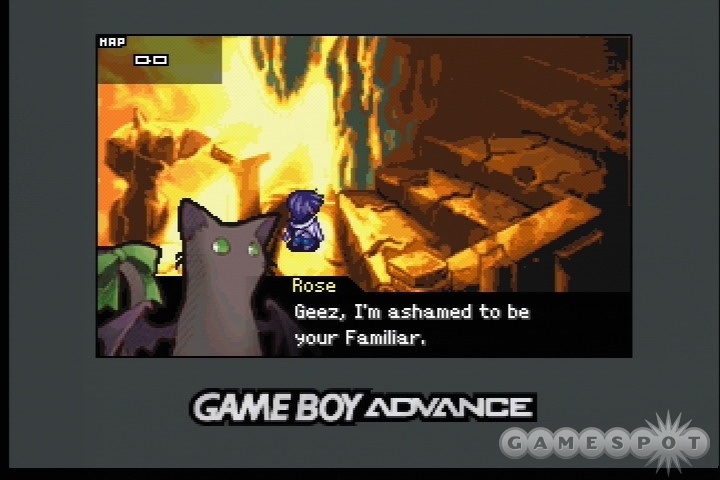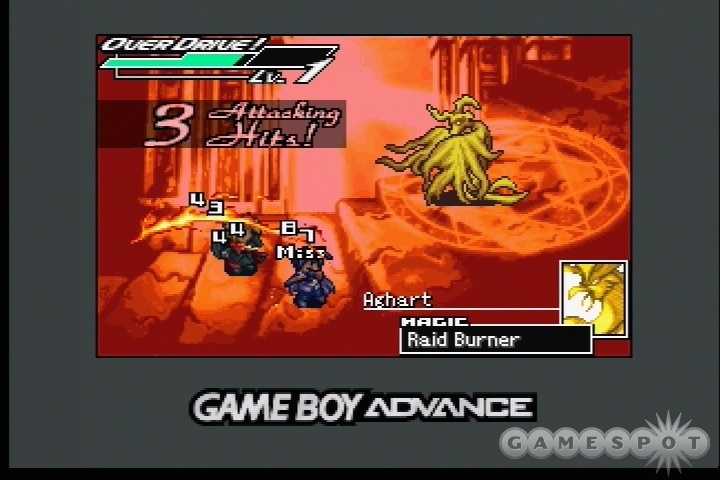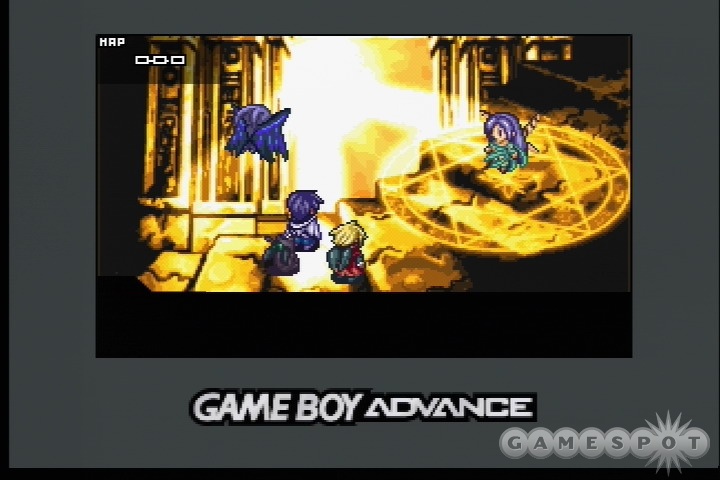Riviera: The Promised Land Feature Preview
We check out Atlus' upcoming GBA RPG.
If you're a fan of the Game Boy Advance, then you know that 2005 has been an odd year for Nintendo's handheld system. Though there has been some strong content for the platform, releases have tapered off now that the DS is picking up steam in the US. Thankfully, Atlus is keeping it real and bringing out what will likely be a gem of a release when it hits, Riviera: The Promised Land. The game is an old-school, 2D role-playing game that's reminiscent of the kind of games that hit during the genre's heyday in the 16-bit era. Hardcore, and we mean extremely hardcore, fans may recognize the game from its Wonderswan Color incarnation that hit in Japan in 2002. But for most folks, this will be their first exposure to developer Sting's solid RPG. We got our hands on a final version of the game to see how it does on the GBA.

Riviera's story is a retro mix of Norse mythology, amnesia, talking cats, fairies, and angels, which are all the expected RPG archetypes. The backstory to the adventure revolves around Ragnarok, a war between gods and demons that nearly destroyed the world. The day was saved when the gods--who were getting their butts handed to them as their realm, Asgard, was overrun by demons--broke an ancient taboo and created the grim angels. The dark-winged avengers were powered by the very life of the gods and were armed with weapons called diviners. The newly minted fighters ended the war and sealed away the demons. Unfortunately, the gods weren't too long for the world after the battle and died shortly thereafter, leaving their powers in the heavenly isle of Riviera. The deities entrusted the residents of the island to keep an eye on their powers until they chose to return. Sounds great, right? Well, in the time-honored tradition of all RPGs, things don't go quite as planned. A thousand years after the gods' demise, signs point to the return of the demons. Without the gods around, Asgard is pretty much up the creek without any help. Thankfully, the gods left some caretakers, known as "the seven magi," to oversee the realm. The magi decide to bring back the grim angels, and so they are asked to come back to unleash Riviera's stored divine power via the ominous-sounding act known as "The Retribution."
You'll play as Ein, one of the two grim angels dispatched to Riviera to get the unleashing going. You're accompanied by Ledah, one of the mightiest of the angels in Asgard, and Rose, your sass-spewing feline familiar. Your mission takes an unexpected turn, and you wind up with amnesia in a town in Riviera, which is where the real adventure begins. As you recover your memory, you'll meet an eclectic assortment of characters that will offer a different perspective on events as you unravel the game's engaging story.

As far as Riviera's gameplay goes, the RPG follows the basic conventions you'd expect from the genre. You'll explore environments, interact with characters, and gain party members that you'll take with you when you engage in turn-based combat with a ton of foes. Riviera's system is turn-based, but it has some interesting wrinkles to it that should keep you on your toes. When exploring, you'll have the option to switch between look and move modes. Look mode lets you examine trigger areas in each location you'll be in. You'll need to have trigger points in stock--and you'll earn them through combat--in order to examine the locations in each area. More often than not the extra effort rewards you with a useful item. Move mode simply lets you choose which path to head out on, because in some cases you'll have more than one way to go.
Decisions, decisions…
Combat has a challenging twist that will force you to rack your brains as you get deeper into the game, due to the fact that you'll only be able to take a limited number of items into battle. While this isn't that big of a deal early on, as you progress, you'll find yourself stressing over whether to take more health-restoring potions, a weapon, or an item to temporarily buff your stats. The weapons you'll use are also an interesting aspect of combat, as each grim angel has its own unique diviner that will develop as you earn experience. However, in some cases, characters will be able to use weapons in addition to their unique arms. The catch is that the power attacks you can perform--supercharged assaults that will drain an onscreen overdrive meter that fills over the course of combat--will only be possible with a character's specific weapon.

The visuals in the game are a very polished collection of hand-drawn art that's enhanced by strong animation, rich color, and a stylish presentation. Though it is very much in the vein of some of the best 2D games on the Super Nintendo, Riviera is a cut above those old ones, thanks to the GBA's extra processing muscle. The attacks are well-animated, and, in the case of the special attacks, sport a welcome over-the-top sensibility that works with the game's anime look. The stylish art is shown off very nicely by the conversation screens, which contain large character portraits, as the cast talks to each other.
The audio is surprisingly robust, thanks to a rich score and a generous helping of very clear speech. You'll hear the basic assortment of chirps and chimes during combat, as well as the crisp sound of weapons clashing. The star of Riviera's audio, however, is the speech that's peppered throughout the combat, which gives battles a nice anime touch. Ledah's cry of "Lost Seraph," or other assorted commentary, during a fight, are all very clear and well done. The music in the game has a nice pseudo-orchestrated feel that's equal parts sweeping score and anime battle. The GBA capably handles all of the above with aplomb, making for a strong audio experience.

Based on what we've played so far, Riviera: The Promised Land is a welcome highlight in the GBA's low-key lineup of 2005. The gameplay is nicely done and offers a healthy amount of polish. The story is interesting and makes the most out of the RPG archetypes that it draws on. Best of all, the adventure appears to be a meaty one, potentially as long as one of the GBA Zelda games. The GBA may be falling by the wayside in 2005 as the DS is picking up steam. But games like Riviera serve as potent reminders that there's a lot of life left in the handheld if developers do it right. If you're a fan of RPGs and have been hankering for something now that you've torn through Fire Emblem, you'll do well to check out Riviera: The Promised Land when it ships later this month.
Got a news tip or want to contact us directly? Email news@gamespot.com
Join the conversation